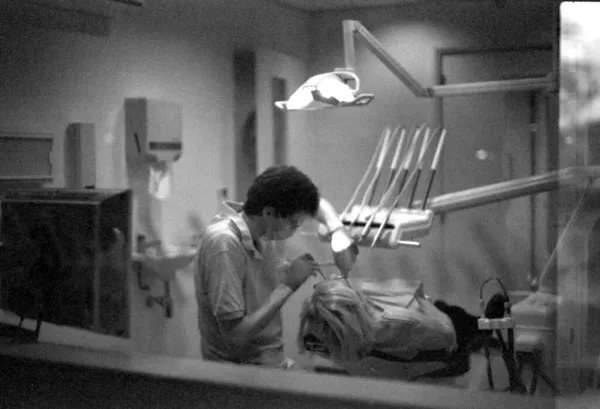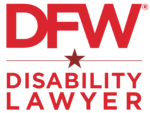
The dental profession is both mentally and physically demanding. According to the American Dental Association “Clinical dentistry is physically demanding in some very specific ways. Backs, necks, shoulders, wrists and hands that for some reason are vulnerable to injury may be challenged by a combination of position, repetitive motion, stress, and even leisure activities. Some impairments – a fine tremor for example – would not be disabling for another kind of work, but may prove to be that for a dentist.”
Many dentists that become disability insurance claim clients don’t have a disability because of trauma. Instead, they are unable to continue their clinical practices because of degenerative conditions like degenerative disc disease or ulnar neuropathy. Others are under the care of a physician for significant levels of anxiety or depression. These dentists are no longer in a position to treat patients in a clinical setting.
Facing a disability is very frustrating. Any one of us would first look for ways to modify how we perform our work. However, sometimes modifications just aren’t possible. Some dentists, orthodontists, and oral surgeons face this situation when a disabling condition prevents them from performing their work.
Dentist are often business owners
Dentists also often face the demands confronted by all business owners. Many dentists, orthodontists, and oral surgeons practice alone or in small groups. In addition to their clinical practices, these professionals must make decisions about payroll and staffing, general overhead, and insurance.
Disability Insurance for Professionals
Many dentists buy their own disability insurance. As with any insurance policy, the terms and conditions found within the policy (and its endorsements, if any) govern when coverage is owed. Generally, disability insurance policies for short-term and long-term disability insurance carry different standards to meet the definition of “disabled.” Often, a policy will contain a short-term disability period and then a long-term disability period. The short-term disability period may be from six to twelve months, for example. The long-term disability period may then be from the end of the short-term period and through the duration of coverage. The long-term period may be for a set time or until the insured reaches retirement age with Social Security, for instance.
Most disability insurance policies also have a changing definition of “disabled.” First, the insured claimant must show he is unable to perform the material duties of his own occupation. Then, after a period of time, the insured claimant must show he is unable to perform the material duties of any occupation based on his age, education, and experience.
Dentists, orthodontists, and oral surgeons may have purchased polices that are different with certain riders that modify the policy.
Own Occupation Riders
Some disability insurance policies are offered with an own occupation rider. Riders and endorsements are synonymous in insurance policies. A rider is an addition to the policy that changes the terms of the original contract (the policy) in some way. An own occupation rider may change a disability insurance policy to allow the insured claimant to continue to receive benefits for total disability even if they are working in a different job than their own occupation. Own occupation riders may be found in disability policies offered to dentists.
If so, then the insured dentist who cannot perform in his clinical practice may be allowed to work in another capacity while still receiving disability insurance benefits. For instance, some dentists wish to continue working but in research, consulting, or teaching instead of in clinical practice.
Muddying the Meaning of Own Occupation
You would think that it’s pretty easy to determine what “own occupation” means under a disability policy for a dentist. However, some insurance companies muddy the waters in an effort to deny legitimate claims. For instance, in addition to limitations on how much may be earned in a different occupation, The Standard is known to add the following definition to “own occupation” as follows: Own Occupation means any employment, business, trade, profession, calling or vocation that involves Material Duties of the same general character as the occupation you are regularly performing for your Employer when Disability begins.
The insurance company then looks at what duties the dentist may perform under the dentist’s license. The dentist may have a physical condition, such as a neck or shoulder condition, that prevents the dentist from performing clinical work. This dentist may have only treated patients in a clinical setting for decades.
The dentist would certainly consider his “own occupation” to be a dentist treating patients in a clinical setting. He may even have bought a disability insurance policy with an own occupation rider to ensure that, if he becomes disabled, he can collect income replacement for lost income if he can’t perform his clinical work while still performing less demanding work. The insurance company sold him a policy with an “own occupation” rider.
Sounds simple, right? Not to the insurance company.
Instead, the insurance company may look to what other work the dentist is allowed to perform under his license even if he has never done that kind of work before. The insurance company may say the dentist’s license allows him to teach. Thus, he can still perform his “own occupation” even if he has never taught dentistry before. Sounds a bit misleading on the part of the insurance company, if you ask me.
This also is contrary to what the American Dental Association seems to reasonably encourage dentists to do. The ADA mentions career options for the disabled dentists to transition into other, less physically or mentally demanding work. Insurance companies sell own occupation riders and market their policies as allowing dentists to perform some other work while maintaining benefits if they can’t perform their own occupation. Then, some insurance companies pull the rug out from under the disabled dentists. It’s misleading, wrong, and damaging to the disabled dentist.
Options
First, a dentist, orthodontist, or oral surgeon confronted with a denial should seek legal counsel from an attorney with experience with disability insurance claims. The attorney should be ready, willing, and able to pursue litigation. The attorney needs to determine if your claim falls under ERISA (a federal law) or not. ERISA preempted claims are significantly different than those governed by Texas state law. Texas law provides causes of action and potential for increased civil damages and penalties.
The first step is a review of the dentist’s disability insurance policy and a free consultation. We are here if you are a dentist, orthodontist, or oral surgeon struggling with a disability insurance denial or if you are being targeted for a forthcoming denial of disability insurance benefits.
